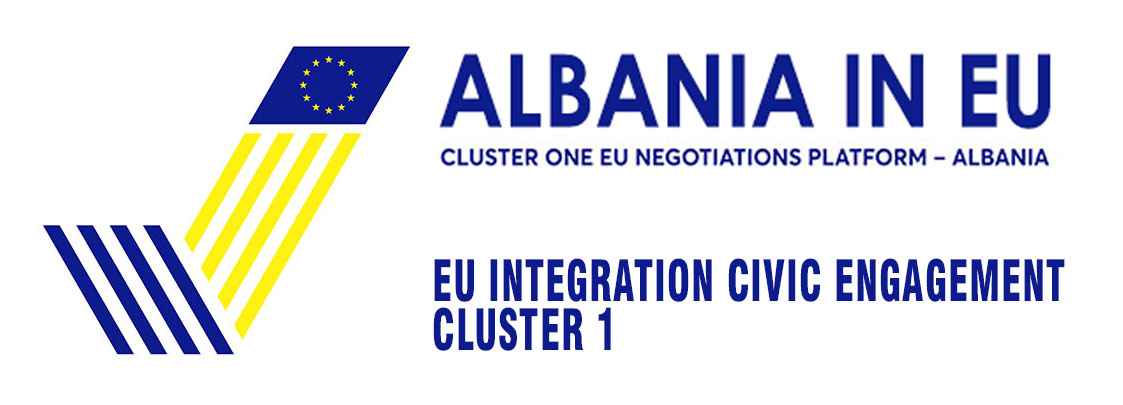Combatting High Air Pollution Levels in Albania – By Ines Hoti, Epoka University
Executive Summary
Albania confronts substantial air pollution difficulties, with an average Air Quality Index of 61 (AQI, n.d.), classed as “Moderate,” and PM2.5 levels 3.3 times higher than WHO (WHO, 2021) recommendations. These levels of air pollution have serious effects for public health, causing thousands of early deaths each year and exacerbating chronic respiratory and cardiovascular diseases. Despite certain improvements, such as lowering sulfur oxide emissions and participating in international environmental initiatives, Albania’s air quality remains below EU criteria. This policy brief describes the current situation of air pollution in Albania, compares it to regional and EU benchmarks, investigates the health consequences, and makes extensive policy recommendations to enhance air quality and public health outcomes.
Introduction
Air pollution remains a severe environmental and public health issue around the world, with Albania still experiencing substantial challenges despite recent progress. This policy brief intends to study Albania’s current level of air pollution, evaluate its compliance with regional and EU norms, assess the health implications on the Albanian population, and propose focused policy solutions to effectively reduce these difficulties.
Overview
Levels of Air Pollution in Albania
In 2023, Albania experienced moderate levels of air pollution, with an average Air Quality Index of 61, categorized as “Moderate” (AQI, n.d.). This classification suggests that while the air quality is generally acceptable, it may cause discomfort to individuals with certain sensitivities (IQAir, n.d.). The average PM2.5 concentration was found to be 3.3 times the World Health Organization’s (WHO, 2021) annual air quality guideline value.
Comparison with Regional and EU Standards
Albania’s air pollution levels are much greater than many other countries in the region, far exceeding EU guidelines. Tirana, Albania’s capital city, had the highest AQI among Albanian cities in 2023 at 65, remaining in the “Moderate” category but indicating significant health hazards with sustained exposure (Central Intelligence Agency, n.d.). Albania is Europe’s seventh most polluted country, according to Politico. Tirana ranks 51st among capital cities for air pollution, trailing only Skopje and Podgorica (Zoinet, 2022). Bosnia and Herzegovina has the highest level of air pollution in Europe, with an average annual PM2.5 concentration of 27.5 µg/m³; however, there was an 18% decrease from 2022 to 2023 (Zoinet, 2022). Other adjacent nations, like North Macedonia, Montenegro, and Serbia, have significant levels of air pollution (Zoinet, 2022). Kosovo is ranked 17th, with slightly lower pollution levels (Journalism Fund, n.d.). The EU’s Ambient Air Quality Directive (AAQD) limits PM2.5 to 25 µg/m³ yearly and 50 µg/m³ daily. Albania’s average PM2.5 concentration far exceeds these levels, highlighting the necessity for more aggressive pollution control measures to comply with EU requirements (Air Quality Life Index, 2023).
Health Impacts on the Albanian Population
The health effects of air pollution in Albania are severe. In 2021, PM2.5 exposure was connected to around 4,600 premature deaths nationwide (Statista, 2023). The impact is especially acute in Tirana, one of Europe’s most polluted capital cities.
The New York State Department of Health (n.d.) claims long-term exposure to high PM2.5 levels can increase the risk of heart disease due to fine particle penetration into the respiratory tract and bloodstream. And cause premature death, especially among individuals with chronic heart or lung diseases (New York State Department of Health, n.d.). According to California Air Resources Board (n.d.) long-term exposure can worsen asthma and respiratory disorders, resulting in chronic bronchitis and impaired lung function; as well as reduced lung function growth in youngsters, potentially impacting future respiratory health. And cause increased rates of certain cancers, notably lung cancer (California Air Resources Board, n.d.). These risks are particularly severe for vulnerable populations, including older adults, children, pregnant women, and individuals with pre-existing heart or lung diseases.
Efforts to Address Air Pollution in Albania
Albania has made many steps to reduce air pollution, with varying degrees of success. Since 2005, Albania has reduced sulfur oxide emissions by roughly 35% and ammonia emissions by about 10%. However, emissions of nitrogen oxides (NOx), non-methane volatile organic compounds, and particulate matter 10 µm or less in diameter (PM10) have marginally increased (UN Economic Commission for Europe, n.d.). Albania has implemented European fuel quality standards in an effort to limit the use of fossil fuels in energy generation and industrial activities. This program is part of a larger effort to reduce the environmental impact of industrial activity (UN Economic Commission for Europe, n.d.). Albania participates in the Assistance Program of the Convention on Transboundary Effects of Industrial Accidents, expressing its commitment to managing and preventing industrial accidents that may have transboundary environmental consequences. However, the government currently lacks systems for consulting with neighboring countries on detecting hazardous activities with potential cross-border consequences (United Nations Economic Commission for Europe)
Compliance with EU Standards
The Ambient Air Quality Directive (AAQD) outlines EU air pollution guidelines, including limit levels for pollutants such as PM10, PM2.5, SO2, NO2, ozone (O3), and lead (Air Quality Life Index, 2023). Albania’s air pollution levels surpass the EU’s annual PM2.5 limit of 25 µg/m³ and daily limit of 50 µg/m³ (Air Quality Life Index, 2023). This noncompliance emphasizes the need for Albania to tighten its environmental legislation and enforcement systems. Albania’s involvement in the Convention on Long-range Transboundary Air Pollution (CLRTAP) and interest in joining protocols on heavy metals and persistent organic pollutants demonstrate a commitment to solving air pollution challenges (Joint Research Centre, 2022). However, the success of these agreements is contingent on Albania’s capacity to implement and enforce applicable environmental legislation, particularly those governing industrial emissions.
Policy Recommendations
Albania presents major problems in reducing air pollution levels, which not only fail to satisfy EU criteria but also represent considerable health hazards to its citizens. While progress has been made in lowering some types of emissions, more action is required.
- Enhancing Regulatory Enforcement: Improve monitoring and reporting systems to promote transparency and accountability.
Increase the enforcement of emission limits for industries and automobiles in order to reduce PM2.5 emissions. - Investment in clean energy and infrastructure: Encourage the use of renewable energy technology to lessen our reliance on fossil fuels. Invest in public transit systems to help reduce vehicle emissions and traffic congestion.
- Education and Awareness Campaigns: Create and implement education and awareness initiatives to teach the public about the health consequences of air pollution and to encourage emission-reducing habits.
International Cooperation: Collaborate with neighboring countries and international partners on projects addressing transboundary air pollution challenges. Albania may take decisive efforts to reduce air pollution, protect public health, and line with EU environmental requirements by implementing these policy recommendations.
References
- Air Quality Life Index. (2023). Europe Fact Sheet 2023. Retrieved May 28, 2024, from https://aqli.epic.uchicago.edu/wp-content/uploads/2023/08/Europe-FactSheet-2023_Final.pdf
- AQI. (n.d.). Albania Air Quality Dashboard. Retrieved May 28, 2024, from https://aqi.in/us/dashboard/albania
- Central Intelligence Agency. (n.d.). The World Factbook: Albania. Retrieved May 28, 2024, from https://www.cia.gov/the-world-factbook/countries/albania/
- IQAir. (n.d.). Albania Air Quality. Retrieved May 28, 2024, from https://www.iqair.com/us/albania
- Journalism Fund. (n.d.). Unbreathable air: The Western Balkans’ silent crisis. Retrieved May 28, 2024, from https://journalismfund.eu/unbreathable-air-western-balkans
- Joint Research Centre. (2022, June 28). Limited progress in environmental and climate protection in the Western Balkans. Retrieved May 28, 2024, from https://joint-research-centre.ec.europa.eu/jrc-news-and-updates/limited-progress-environmental-and-climate-protection-western-balkans-2022-06-28_en
- New York State Department of Health. (n.d.). Particle pollution from fine particulates. Retrieved May 28, 2024, from https://www.health.ny.gov/environmental/indoors/air/pmq_a.htm
- Politiko. (n.d.). Albania is the 7th most polluted country in Europe, according to new norms crossing the border. Retrieved May 28, 2024, from https://politiko.al/english/e-tjera/shqiperia-e-7-ta-me-e-ndotura-ne-europe-normat-trefish-mbi-kufirin-e-obs-i503658
- Statista. (2023). Air pollution deaths by pollutant in Albania. Retrieved May 28, 2024, from https://www.statista.com/statistics/1428093/air-pollution-deaths-by-pollutant-albania/
- United Nations Economic Commission for Europe. (n.d.). Synopsis: Third environmental performance review of Albania. Retrieved May 28, 2024, from https://unece.org/DAM/env/epr/epr_studies/Synopsis/Albania_ECE.CEP.183_Synopsis.pdf
- World Bank. (2021). Albania Country Profile. Retrieved May 28, 2024, from https://climateknowledgeportal.worldbank.org/sites/default/files/2021-06/15812-Albania%20Country%20Profile-WEB.pdf
- Zoinet. (2022). Pollution in the Western Balkans. Retrieved May 28, 2024, from https://zoinet.org/wp-content/uploads/2022/02/Pollution-Balkans-EN2.pdf

I am Ines Hoti, 21 years old, and I recently graduated with a Bachelor of Arts in Political Science and International Relations from Epoka University, where I was recognized as a student of excellence. I am fluent in four languages—Albanian, English, Italian, and French. Through the Erasmus Program, I had the opportunity to study at the University of Tartu in Estonia. My professional journey includes internships at the Bank of Albania, the Commissioner for Protection against Discrimination, and an ongoing role at the Albanian Ministry for Europe and Foreign Affairs.
